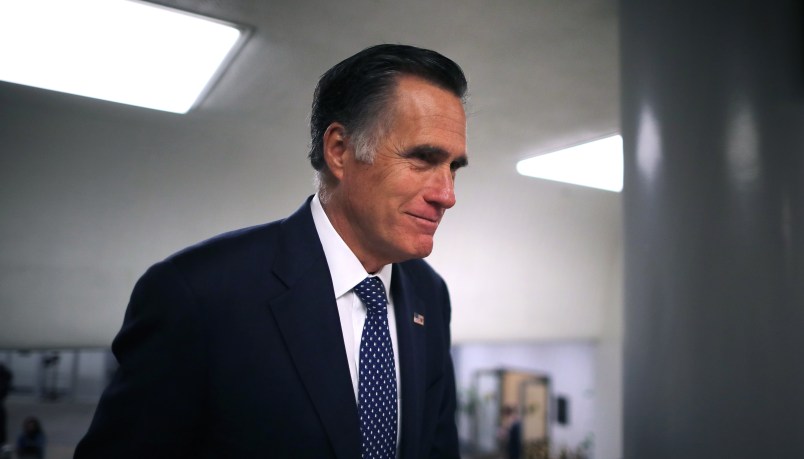Sen. Mitt Romney (R-UT) and Sen. Tom Cotton (R-AR) have some ideas for helping American individuals and families handle the economic fallout of the COVID-19 outbreak–ideas that hew close to Democratic ideology.
On Monday afternoon, Romney issued a variety of proposals that included a decidedly non-conservative universal basic income measure.
“Every American adult should immediately receive $1,000 to help ensure families and workers can meet their short-term obligations and increase spending in the economy,” Romney said in a press release.
The Utah Republican said the check would “help fill the gaps for Americans that may not quickly navigate different government options.”
Romney’s other proposals included bridge grants from the Small Business Administration (SBA) for small business that did not receive Economic Injury Disaster Loan and amending the Pell Grant award system to factor in impact of the virus when deciding how much students ought to receive in financial assistance.
And Cotton had similarly voiced support for immediate cash-granting measures earlier in the day, albeit in more vague terms than Romney.
During an appearance on “Fox and Friends,” the Arkansas senator said that the House Democrats’ emergency response package likely won’t pass the Senate because “it doesn’t go far enough and it doesn’t go fast enough.”
“There are too many gaps in coverage for the smallest businesses and for medium-sized businesses,” Cotton told the show’s co-hosts. “And I and a lot of other senators who I’ve spoken to over the weekend are worried that we’re not doing enough to get cash into the hands of affected workers and families quickly. So we’re going to be focused this week on how to do just that.”
Though he didn’t provide an exhaustive list of proposals, Cotton suggested that one solution could be refunds from the Treasury Department to anyone who paid taxes in 2018.
The House passed the Families First Coronavirus Response Act on Saturday, which included paid sick leave for some workers and increased funding for food assistance and Medicaid. President Donald Trump expressed his “full support” for the measure after its passage.



